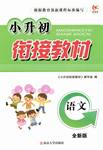题目内容
17.Ever wonder why sometimes a hug is all you need?You can't explain it,but there's just something comforting about being in your wife's arms after a rough day or giving mom a hug after a long time apart.A new study says the warm feeling in a hug is more than just skin deep.Researchers from the University of California,Berkeley believe that this loving feeling could have anti-aging benefits.
Oxytocin,sometimes referred to as the"love hormone(荷尔蒙)"or the"trust hormone",is responsible for those indescribable feelings we get when we're bonding with a lover or a loved one.
Levels of the hormone drop as we age,and evidence suggests that could be a contributing factor to the deterioration of our bodies as we age.Muscle loss in particular is one of the major side effects of aging,with our bodies losing up to 5percent of our muscle mass each decade past our 30s.
In the study,published in the journal Nature Communications,researchers injected oxytocin into older mice with muscle damage.The older mice had lower levels of the hormone than younger mice initially.But after nine days,the older mice that were given the hormone healed better than those who did not.In fact,their ability to repair muscle damage was up to 80percent that of the younger mice.
The results were not only fast-acting,but provide hope for future uses of the hormone in a variety of anti-aging capacities."This is good because it demonstrates that extra oxytocin improves aged tissue stem cells(组织干细胞)without making muscle stem cells divide uncontrollably,"study co-author Wendy Cousins said in a statement.
Previous uses of anti-aging molecules have also been associated with higher cancer risk,but researchers are hopeful that oxytocin can be useful in humans without this risk.In the future,researchers of Berkeley say oxytocin could be used to fight other age-related health issues by improving bone health and even being used as an alternative to hormone replacement therapy.
Now go out and give someone a hug.
33.According to the passage,oxytocinA.
A.decreases when people get older
B.creates loving feeling on the skin
C.leads to the great loss of muscles
D.can be used in humans without any risk
34.The underlined word"deterioration"in Paragraph 4probably refers to the state ofB.
A.getting fatter
B.becoming worse or less
C.growing stronger
D.dividing uncontrollably
35.What can be learned from the research?D
A.All the older mice healed faster in the research.
B.Older mice healed better than younger ones after 9days.
C.Extra oxytocin in older mice controlled muscle cell division.
D.Mice with oxytocin injection improved the ability to repair muscle damage.
分析 文章大意:本文是一篇说明文,说明了拥抱的力量,它比直接的肢体接触感觉更好,它能产生一种让人舒适的荷尔蒙,并且还做了实验进行了证明.
解答 33.A 细节理解题.根据第四段第一句话Levels of the hormone drop as we age可知荷尔蒙随着年龄的增长而下降,因此选A.
34.B 词义猜测题.前面指出荷尔蒙随着年龄的增长而下降,而这也是导致身体变差的原因.因此答案选B.
35.D 推理判断题.根据文章第五段最后两句话But after nine days,the older mice that were given the hormone healed better than those who did not.In fact,their ability to repair muscle damage was up to 80percent that of the younger mice可知年老的老鼠有了荷尔蒙之后,肌肉损伤好得很快,因此答案选D.
点评 本文是历史文化类阅读理解.这类题材是高考常考的内容之一,它注重考查考生总体理解把握大意以及结合语境做出合理推断的能力,要求考生做题时要在把握大意的基础上结合题目做出正确的选择.

练习册系列答案
 学而优衔接教材南京大学出版社系列答案
学而优衔接教材南京大学出版社系列答案
相关题目
8.After two years'study,he now has a __________ better command of English.( )
| A. | very | B. | far | C. | fairly | D. | quite |
5.-What about the rent?
-_____.You can pay weekly or monthly.( )
-_____.You can pay weekly or monthly.( )
| A. | It's up to you | B. | That's all right | ||
| C. | It just depends | D. | Not at all |
12.-Hurry up!We still have 30miles to _____ before dark.
--Ok.I will make every effort not to fall behind.( )
--Ok.I will make every effort not to fall behind.( )
| A. | finish | B. | keep | C. | pass | D. | cover |
9.-The constant noise around here______ me crazy!
-Calm down.It's no use complaining.( )
-Calm down.It's no use complaining.( )
| A. | drove | B. | drives | C. | is driving | D. | had driven |
6.On the morning of October 12,1492,Christopher Columbus and his crew came to the shores of the Caribbean islands,mistakenly believing they ________ in Southeast Asia.( )
| A. | arrived | B. | had arrived | C. | has arrived | D. | would arrive |